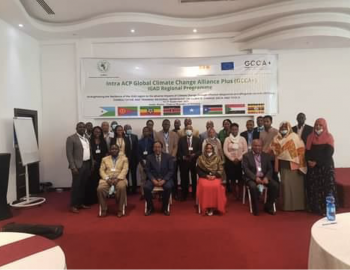Report : Integrating urban agriculture and forestry into climate change action plans
Report : Integrating urban agriculture and forestry into climate change action plans
For cities to be sustainable, they need to simultaneously mitigate their greenhouse gas emissions and ensure adequate access to basic urban services such as water, food and energy to their growing populations. A new report from CDKN and RUAF Foundation looks at the cases of Sri Lanka and Argentina where urban adaptation plans have achieved numerous benefits.
Climate change adds to the existing challenges faced by cities. Cities – as net consumers rather than producers of food – are already highly vulnerable to the disruption of critical food and other supplies. Climate change may compound this problem as rural production and food imports are increasingly adversely affected by storms, floods, shifting seasonal patterns, droughts and water scarcity, resulting in (temporary) food shortages and rising food prices.
Kesbewa Urban Council and Western Province, Sri Lanka, along with Rosario and the Santa Fé Province in Argentina are two cities and subnational governments that have started to purposefully integrate urban and periurban agriculture and forestry in their climate change strategies and land-use policies. Both cities were partners in the CDKN-RUAF project on ‘Monitoring impacts of urban and peri-urban agriculture and forestry on climate change mitigation and adaptation’.
Key messages
- Cities need to address the triple challenge of climate change mitigation and adaptation, as well as the provision of basic services, including food, to their vulnerable residents.
- Urban and peri-urban agriculture and forestry may be suitable strategies to address the triple challenge; they are potential strategies for adaptation and, to a lesser extent, mitigation, that can also bring important development benefits.
- Western Province, Sri Lanka is the first provincial government in the country to include urban and peri-urban agriculture and forestry in its climate change adaptation action plan.
- Western Province is promoting the rehabilitation of flood zones through their productive use as a strategy to improve storm water infiltration and mitigate flood risks.
- Rosario, Argentina and the Province of Santa Fé are supporting local agriculture to reduce dependency on imports, to lower greenhouse gas emissions and energy requirements for food production, transport and storage, and to improve the food security and livelihoods of their residents.
- Future upscaling of these interventions will need new urban design concepts and the development of local and provincial climate change action plans and other related policies at different levels that recognise urban agriculture as an accepted, permitted and encouraged land use.
- The involvement of the subnational (provincial) government is key to addressing agriculture and land-use planning at larger scale (outside municipal boundaries), promoting upscaling to neighbouring cities, facilitating access to financing, and developing the provincial policies that must accompany city-level strategies.
Read the full report here.



